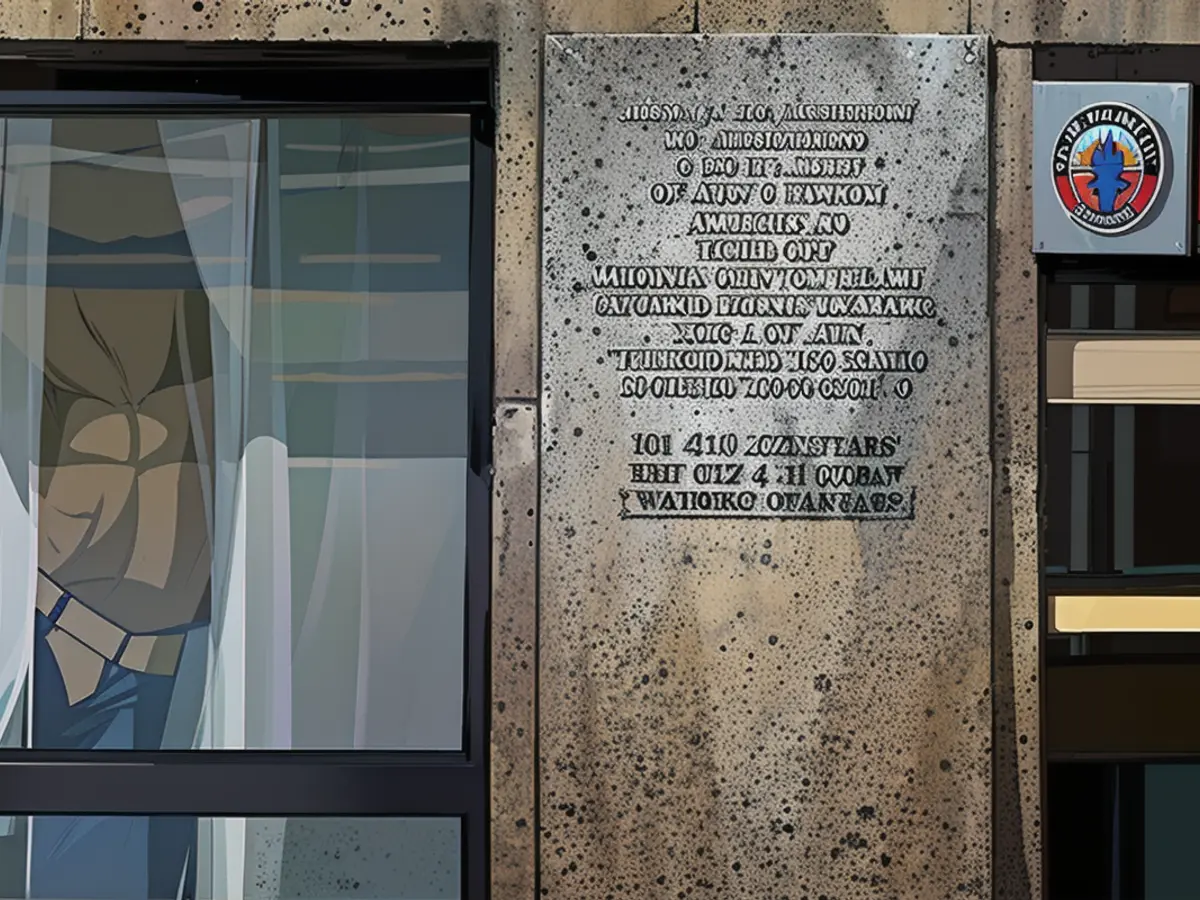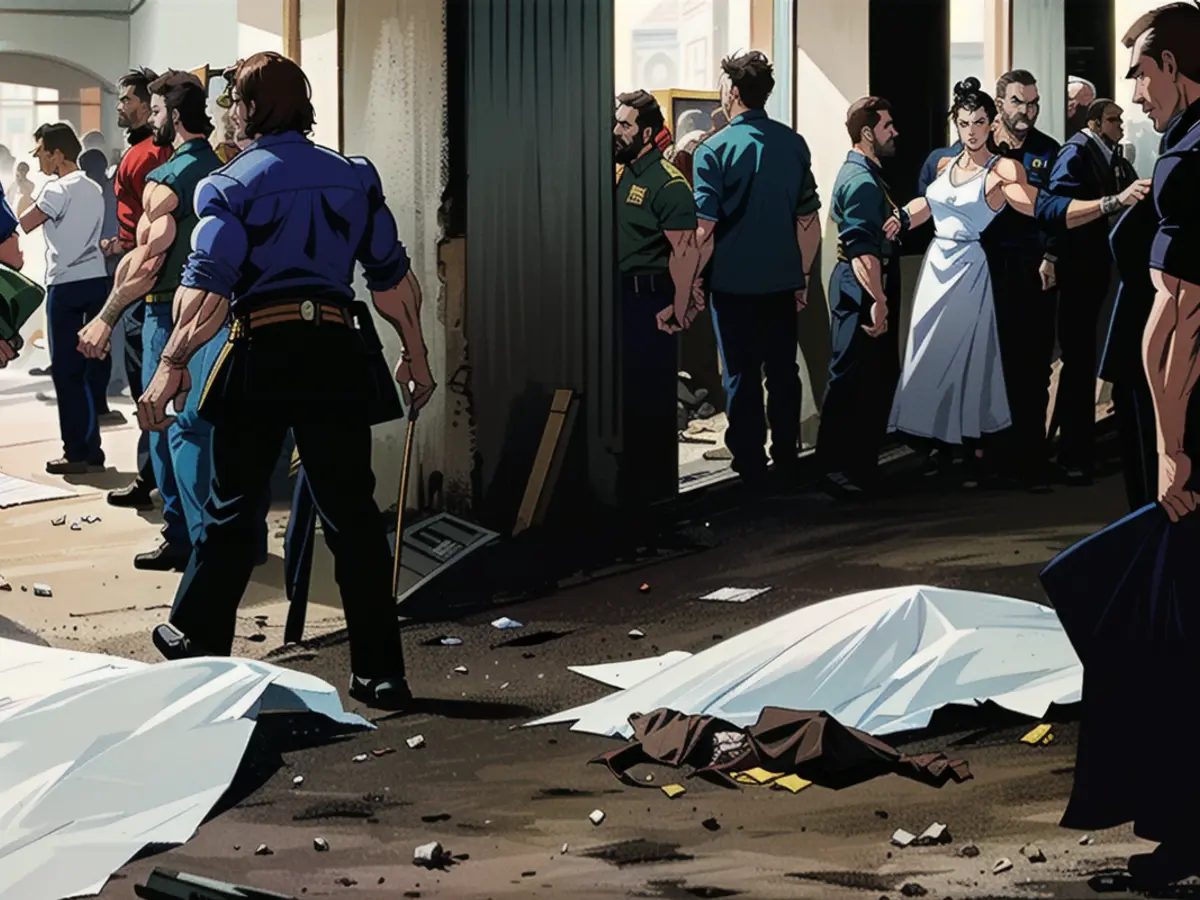Italy's Neo-Fascist Terrorists: Escaping Justice
Five decades ago, a nefarious act of terror took the lives of eight individuals in the town of Brescia, Italy. This atrocity was part of the extensive terrorist activity known as the Italian neofascist terror from the 1970s. Even with hundreds of victims, this dark history continues to be elusive, with many crimes remaining unsolved. Historian Benedetta Tobagi describes this bland fact of Italy's history as a unfortunate uniqueness.
The term "Italy's Mysteries" could be compared with a seal of quality, much like "Made in Italy," remarks Tobagi. Italy's national identity does not solely encompass its beautiful scenery, delightful cuisine, or sunny skies. It also embraces its murky underbelly and its ambiguities, making it the backdrop for revered tales of darkness. This has been evident in the works of Donna Leon's American crime series.
In her recently published book "The Terror Attacks Are All a Mystery," Tobagi explores Italy's past, transcending the boundaries of fiction and delving into the frightening reality of the 1970s. She investigates the neofascist terror that shrouded this decade, leaving many bomb attacks unexplained. This disturbing manner of living amongst constant danger during those years became known as the "lead years."
Tobagi is not merely a scholar of history but an eyewitness to its horrors - her own father, Walter Tobagi, was a journalist, historian, and trade unionist who fell victim to an assassination on May 28, 1980. Thisлась violence, carried out by the Brigata XXVIII Marzo as a statement against the Red Brigades, resulted in the death of Tobagi's own history-bearer. At the age of three, she experienced the loss of a father to political violence.
Besides the suffering caused by the neofascist bombs, the young Tobagi experienced the Red Terror violence, perpetrated by a small faction seeking to rival the Red Brigades. However, she recalls having been spared by the neofascist blasts, only to feel the repercussions of the Red Terror's attacks via the death of her own father.
Fond memories of glorious summers in Italy for tourists collided with the grim present faced by Italians during the 1970s. News cameras brought this terror to viewers' attention, disseminating images of violence and casualties. The random nature of the assaults meant that anyone could fall victim to such violence by mere chance.
The first attack of this period occurred on December 12, 1969, at 4:35 p.m., at the National Agricultural Bank in Milan, Piazza Fontana. Seventeen lives were irreversibly changed in the flashed second as the bomb tore through seven people and wounded 105 more. This began a chain of events that were collectively referred to as the "strategy of tension."
Between December 12, 1969, and August 2, 1980, there were a total of 7 more attacks, with 135 people killed and a staggering 650 injured. The matter of who orchestrated these unimaginable acts remains a mystery, despite fierce speculation about the United States' involvement. Amidst the frenzy of the Cold War, Italy's communism posed a formidable threat. This created a divided climate, with those professing communism facing an onslaught of fear-driven violence.
Tobagi ponders the reasons for the ongoing obscurity regarding the perpetrators of the killings. She investigates the seemingly never-ending trials that often result in acquittals, as apparent in the Italicus Express night train bombing of August 4, 1974. A bomb, planted in compartment 5, exploded just before Bologna, resulting in the death of 12 individuals while injuring 44 people. Despite such tragic events and the lengthy legal proceedings that occurred for almost two decades, no one was held responsible for this devastation.
In the recent trial surrounding the attack on the central Piazza della Loggia on May 28, 1974, two individuals accused of hiding the explosive device in a bin were charged. Despite being minors at the time, these individuals came to be related to the acts in a retrial launched earlier this year.
One conclusion Tobagi draws is that the neofascists' violent, state-backed activities form a tragic Italian idiosyncrasy - a once-intoxicating breed of terrorism that has seeped into the heart of a nation. It raises the question: Why is this history of violence still enveloped in darkness? The true nature of this terror pains her, as she bears the wounds inflicted upon her own family by political brutality.
As Tobagi eloquently puts it, "The state-sponsored terrorist violence is a tragic Italian peculiarity." The weight of the past remains carried by families, altering lives irrevocably as they seek answers to the cruelty bestowed during the lead years. The pivotal question of "who?" lingers long into the years to come, accompanied by a trail of unresolved presumptions.
Back in 1980, a suitcase bomb exploded at Bologna's primary train station at 10:25 a.m. on August 2nd, claiming 85 lives and injuring over 220 people. The court sentenced the bombers to 26 and 16 years in jail, which they successfully served. However, the authorities also discovered the culprits behind the massacre: Licio Gelli, the leader of Freemason lodge Propaganda Due (P2), a spy, a politician, and a banker. Regrettably, by the time the final verdict was announced in 2020, all four masterminds were deceased.
Now, there's a day of remembrance for each of these unforgettable episodes. A memorial plaque bearing the names of the victims is permanently installed at each bombing site. On the 50th anniversary of the Brescia bombing, even Italy's president, Sergio Mattarella, attended. Yet, the lingering question remains: "Will we ever uncover the full story of this massacre?" The public has begun to lose hope and shifted their focus towards other issues.

Read also:
Despite Italy's advancements in combatting international terrorism, the right-wing extremist terrorist attacks in the 1970s remain a persistent challenge. These attacks, including the one in Brescia, have yet to see their perpetrators brought to justice, highlighting the complexities of investigating domestic terrorism.
The persistent mystery surrounding the perpetrators of these attacks has sparked heated debates about the potential involvement of international right-wing extremist groups in Italy's dark history, shedding light on the global nature of terrorism and its impacts beyond borders.






